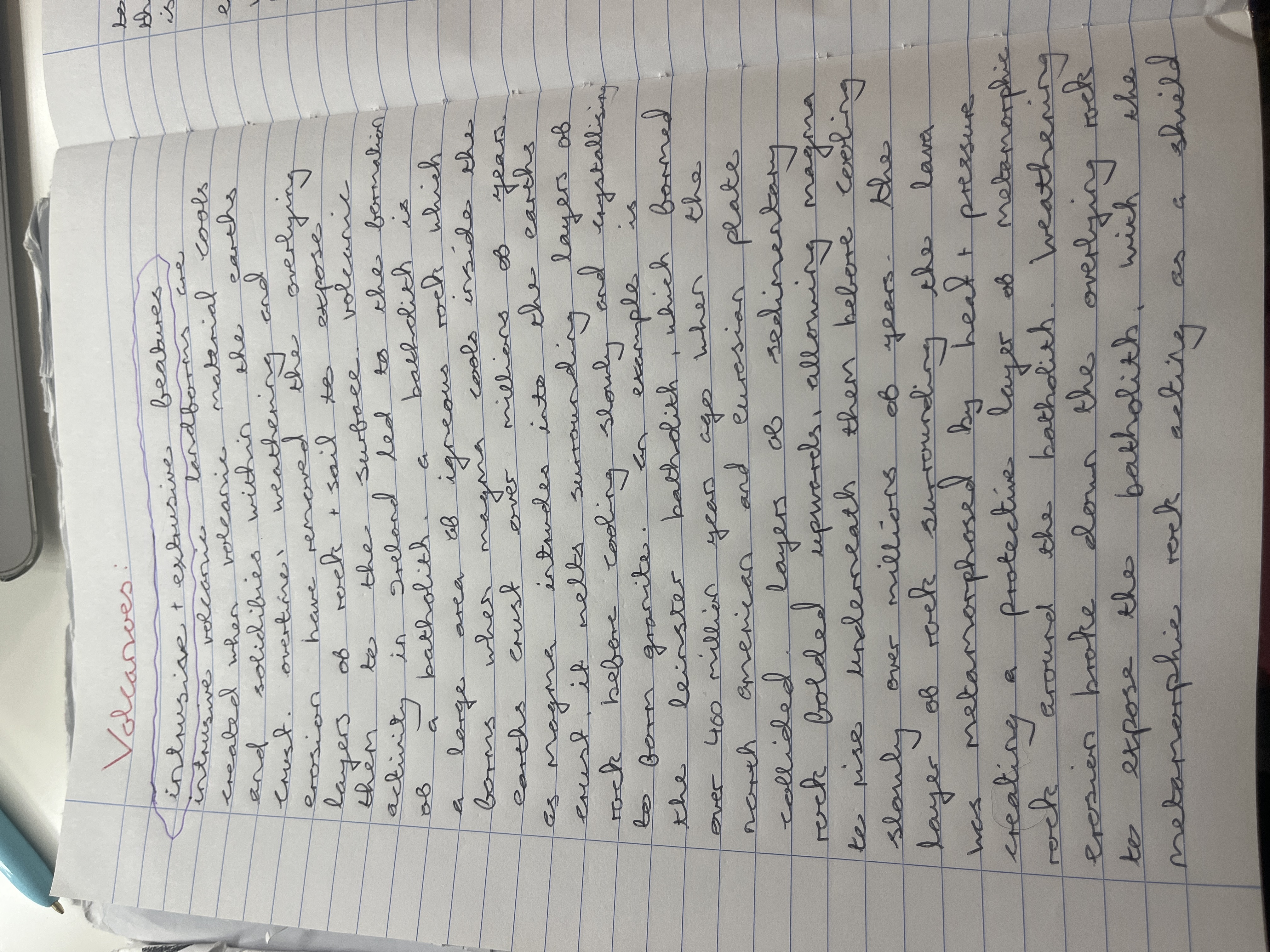What are the intrusive and extrusive features of volcanoes?

Understand the Problem
The question appears to involve understanding the features and processes related to volcanoes, specifically intrusive and extrusive volcanic formations and their geological context. It discusses the processes that lead to the formation of various types of volcanic rock and the geological history behind them.
Answer
Intrusive features form beneath the surface; extrusive features form above.
The intrusive features of volcanoes refer to magma solidifying beneath the Earth's surface, forming structures like batholiths, dikes, and sills. Extrusive features are formed when magma solidifies on the Earth's surface, creating features like lava flows and volcanic cones.
Answer for screen readers
The intrusive features of volcanoes refer to magma solidifying beneath the Earth's surface, forming structures like batholiths, dikes, and sills. Extrusive features are formed when magma solidifies on the Earth's surface, creating features like lava flows and volcanic cones.
More Information
Intrusive features often include large formations like batholiths, which form deep within the Earth over millions of years, as the magma cools slowly to form granite rocks.
Tips
Remember that intrusive landforms cool slowly underground, while extrusive landforms cool quickly on the surface.
Sources
- Intrusive And Extrusive Volcanic Landforms: Types And Formation - pwonlyias.com
- Volcanic Landforms: Extrusive and Intrusive - GeeksforGeeks - geeksforgeeks.org
- Volcanic Landforms: Extrusive Igneous - National Park Service - nps.gov
AI-generated content may contain errors. Please verify critical information